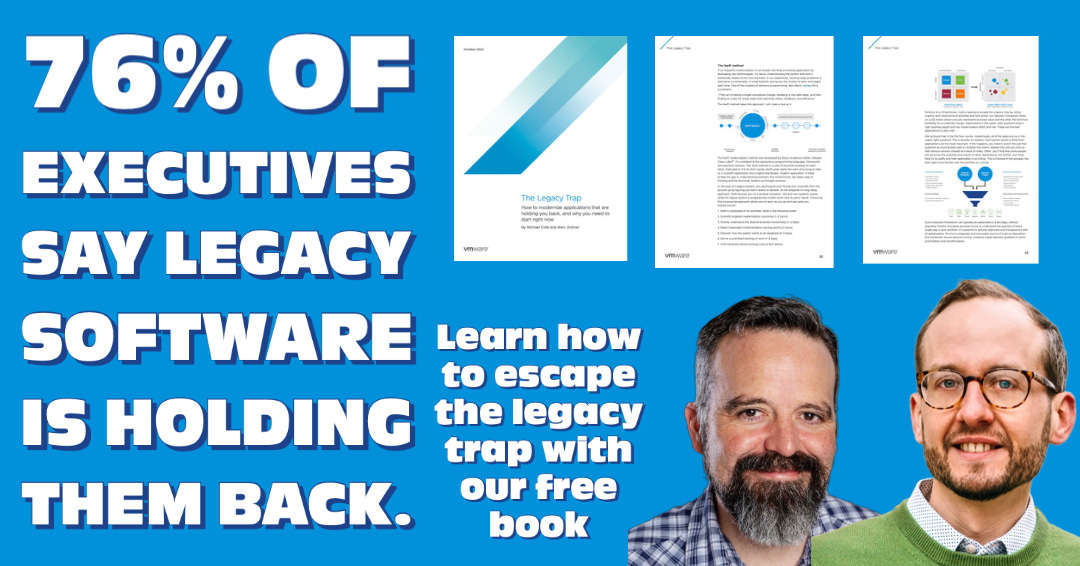Everything is big in America & the men don't wear designer purses
Noticing America with expat eyes, the TED talk deconstructed, being satisfied, and some links and fun phrases.
A Stranger Here Myself, 2022 Christmas edition
I’m a Texan living in Amsterdam, so when I come back to the States (Dallas and Austin this time), I noticed things about American that I never did:
People are eager to be helpful, especially when you have a bunch of kids. Everyone offers to help with luggage. A cashier will race back to the shelves to find a replacement for a broken item, or verify the sales price.
People are apologizing all the time, and people tell them it’s not a big deal, and apologize back. At a haircut place, someone forgot at a jacket and came back. That person said “sorry,” the haircutter said “sorry,” and then there was another sorry in there.
Everything is huge.
SUVs and sedans are the norm, not hatchbacks. In Europe, the hatchback and small station wagon are the norm for cars. There are many Teslas too. In the States, there are Teslas, but almost no hatchbacks and very few station wagons.
The eggs, even the organic ones, are a pale yellow.
Also, I almost forgot that you refrigerate eggs in the US.
Litigation lawyers love billboards. Hit by a truck? Workplace injury? Just drive down the highway and you’ll find five or ten lawyers with stern looks ready to help YOU GET MONEY. Sometimes they’re even holding sledge hammers or baseball bats. So weird.
There’s a definite Austin look. Clothes are cotton, but outdoors-y. Tattoos for sure, but low-key ones. Shorts, t-shirts and even sleeveless t-shirts. Lots of dogs on long leashes with poop-bags artfully tied to the leashes. Which I guess is to say: very little designer clothes.
Men do not, at all really, wear murses, man purses. This is so normal in Europe, that I don’t even notice it anymore
My content
10 Years of Project Sputnik, with Barton George Software Defined Talk #393 - Ten years ago Dell launched the developer laptop, shipping a Linux desktop of their best gear. In this episode, Coté talks with Barton George who’s lead the project about Project Sputnik, lessons learned about innovating in large companies, and compressed air can sponsorships.
2022 Year in Review, Software Defined Talk #394 - This week we revisit the major cloud news and tech trends of 2022. Topics include: hyperscaler growth, remote work, missed opportunities and what were watching in 2023. Plus, we buy or sell: Serverless, Blockchain, Crypto, Twitter and Cloud Repatriation/FinOps.
I’ve spent a lot of time this year helping out with our annual conference, SpringOne. It’s January 24th to 26th. If you’re a developer, doing operations, DevOps tooling and platform engineering stuff, or an executive in charge of getting better at software, you’ll get a lot of useful info.
It’s all online now, so it’s free and easy to attend. There’s an initial set of keynotes and highlighted talks, and then some additional talks ongoing.
Here’s a game you can play: try to figure out which corny jokes I got inserted into the final talks and MC’ing. Register for it, and check it out.
The inspiresting talk format
From “What Was the TED Talk?”
anyone is capable of giving a TED-esque talk. You just need an interesting topic and then you need to attach that topic to an inspirational story. Robots are interesting. Using them to eat trash in Nairobi is inspiring. Put the two together, and you have a TED talk. I like to call this fusion “the inspiresting.” Stylistically, the inspiresting is earnest and contrived. It is smart but not quite intellectual, personal but not sincere, jokey but not funny. It is an aesthetic of populist elitism. Politically, the inspiresting performs a certain kind of progressivism, as it is concerned with making the world a better place, however vaguely. “The speaker’s work and words move you and fill you with an expanded sense of possibility and excitement,” Anderson writes of the successful TED talk. “You want to go out and be a better person.”
And, then, further:
What is distinctly TED about Bolte Taylor’s talk is how she makes cognitive science somehow about self-improvement. Her talk does not aim to teach us only about the hemispheres of the brain, but also how to be better humans.

“I have it pretty good”
From “Moving Fast and Breaking Things”:
their failures are stemming from their unwillingness to cash out, to stop and take stock and say “I have it pretty good.” They are ever-greedy, ever-hungry, ever-empty souls that get worse as you learn more. They will never be happy, a burden they outsource to anybody unfortunate enough to stay too close.
While this is about tech bros, taken in a more basic way it can be about oneself, and not even wealth. Just about being satisfied with how things are, appreciative of the work you’ve already done and to stop worrying about whatever. This work can be your job, your life, your self improvement, worrying about if you way overpaid the rental car company. You can just think: “I have it pretty good” and stop worrying and striving to optimize.
Wastebook
“The best way to complain is to make things.” (attributed to LCD Soundsystem founder James Murphy)
Related: good ideas, facts even, need marketing.
“If the train leaves every 5 minutes you don’t care about a timetable. If it leaves every 2 days you want to know exactly when it leaves” Here.
“You see, when my daughter was very little, Xmas was a thing of logistics.” But also: In the mornings, the child and I would walk the grounds looking for wild rabbits. Our room had a secret door that opened into the bar area. In the evenings, people would be having a quiet drink before dinner when one of the bookcases would suddenly swing open and a gleeful little girl would emerge. Warren Ellis
Which is to say, a vacation with family-as-kids should really be called a “trip with occasional moment of relaxation and adventure.”
“You can’t untoast the toast.”
Relevant to your interests
Check out my friend Hinada’s new marketing newsletter, first on what a customer journey is in marketing think.
How One Jobseeker Used AI to Apply for 200 Jobs in 2 Days - “AI and other emerging technologies are about speed and efficiency. But if your underlying process is flawed, all technology will do is speed up your poor decisions – it won’t make anything easier.”
From the Twitter Files - Every group has a version of “I don’t want to read all this, just tell me the point.”
movie cards - A story writing organization method for tracking moment to moment narrative, with links between scenes and author intent and possibilities.
Blogging as thinking - “blogging remains my favorite format precisely because the writing so rarely feels like labour. Liberated from the need to pitch an idea or wield credentials, blogging - for a professional writer - frees you up to address topics outside your perceived expertise. It feels like a leisure activity because it’s leisurely - a ramble across fields of culture and knowledge, during which you sneak short cuts and trespass into areas you are not meant to go. A post doesn’t have to have a destination, a point. You can bundle or concatenate several different topics, push into adjacency things that don’t obviously or naturally belong together - like oddments inside a Cornell box. You can start somewhere and end up somewhere completely different, without any obligation to tie things up neatly. Unlike most paid journalism, you are unshackled from release schedules or topicality - able to address anything, from anywhere, and anywhen.”
The 7 tech journalism stories - (1) “New, exciting tech company will revolutionize everything!” (2) “Older, established tech company releases new product!” (3) “Look how rich or weird this tech CEO is!” (4) “Tech company acquires another tech company!” (5) “Tech company is on the rise!” (6) “Tech company is in decline!” (7) And, when things go awry: “Tech founder faces criminal charges!”
And then what? - “If you’re trying to get through your work as quickly as you can, then maybe you should see if you can find a different line of work.” This isn’t too practical (not many people can just up and quit), but it’s a good metric.
Here’s who helped Elon Musk buy Twitter - Those that bankrolled the Twitter acquisition, thus, those who have a financial interest in it working.
Why the super rich are inevitable - A model of wealth accumulation. Of late, I’ve been curious about rethinking owning stock as part of net-worth for the super-rich. Stock in public companies is certainly real, but at high levels it’s not exactly as liquid as cash. And, it can go down dramatically fast. If your net worth is measured by stock, your net worth is more theoretic than real? And if it halves in value, was that value ever there in the first place?
There are even scrambled eggs trolls - “The comments are a predictable dumpster fire of people who didn’t read the article but have strong feelings about it anyway. Don’t be part of the problem!”
Most organizations have to slow down their software releases - or stall out entirely! - because of the shackles of success: that older software that runs their business but that's gotten a bit...mature. Marc Zottner and I recently wrote up the methodology many large enterprises have used to escape the legacy trap, showing results in weeks instead of years. You can read our free ebook here.









I absolutely loved this conglomeration of a newsletter today. I live in Austin and can relate to your Texas comments. Wife and I laughed outloud at the vacation with kids comment and you can't go wrong with an LCD Soundsystem reference - ever. (My wife said, "who is this guy you are reading?" I said, "Some analyst dude I met over a decade ago at a Joe's Crabshack in Boston with Aaron Fulkerson. She said, "Who's Aaron?" "Long story, I said.")